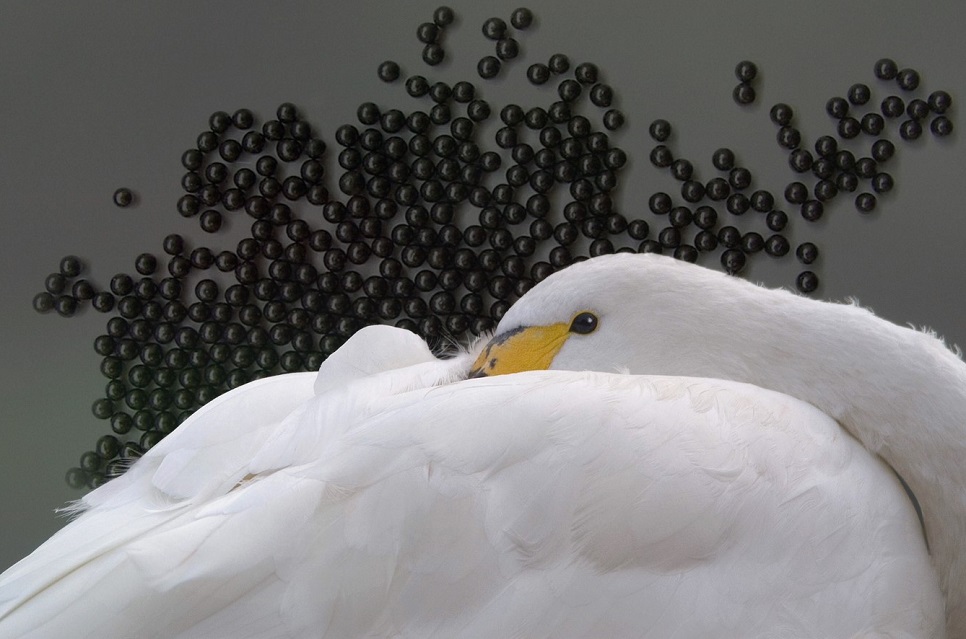Wetland loss threatens wildlife and people, leading conservationists warn
 More wetlands need to be created across the UK to safeguard wildlife and human health and prosperity, according to leading experts.
More wetlands need to be created across the UK to safeguard wildlife and human health and prosperity, according to leading experts.
Nearly one hundred of the country’s top wetland conservation scientists met last week to discuss the threat to wetlands, the wildlife they support and their ability to treat water and prevent flooding.
With drought and flooding scares hitting the headlines and consumers facing rising water bills, the need for more wetland creation and restoration is urgent said experts at this week’s Wetland Futures conference co-hosted by WWT, RSPB and The Wildlife Trusts.
Wetland habitats have declined by 90 per cent in the UK since Roman times, causing the extinction of iconic species like beaver and crane and leaving us with polluted waterways.
Opening the conference Martin Spray of the Wildfowl & Wetlands Trust (WWT) said: “Water - the amount, distribution and quality for humans and wildlife - is the big issue in these challenging times. Healthy wetland habitats are vital if we are to have enough clean water to survive and prosper in the future.
“The financial crisis has brought cuts and austerity and now the threat to remove legislation that gets in the way of economic development. The environment has become marginalised, viewed as a luxury that we only concern ourselves with in times of prosperity. But the natural environment and wetlands in particular, underpins that prosperity and our well-being.
“Innovative partnerships between business, charity and government that are restoring wetlands are the way to solve this problem and we need more of them.”
Decisions made now to affect cost of water services in future
Martin Ross, Environmental Manager of South West Water presented the Upstream Thinking approach. He said: “Changes happening right now are going to affect the cost and reliability of water services in the future.
“As we move forwards, we can either stop pollution getting into our rivers in the first place, or we can continue to invest in technical solutions to remove pollution downstream. All the big technical changes drive up costs.
“At South West Water we believe that managing a whole catchment sustainably is the best way of securing long-term water supplies. And this means having healthy, working wetlands.
“Effectively we are dealing with the source of the problem, not the symptom.
"And with the water industry as a whole looking to improve the sustainability of its business, there is a great opportunity for us and the environmental movement to work together to achieve this common goal.”
Where there's water there's wildlife
Mike Shurmer, RSPB wetland advisor, said: “Conservationists often say that where there’s water there’s wildlife – and that’s definitely true for the UK’s wetlands.
“A healthy wetland is alive with nature – but so much of these areas have been drained and developed over the years that many of the species that rely on them are now under threat.
“There are some great examples where conservationists are working with farmers, landowners and government agencies to restore wetland habitats. The bittern is a classic example of a wetland bird that has been saved from the brink. However, many species are still in decline, such as wading birds like redshank, lapwing and snipe.
“The Government has vowed to halt biodiversity loss by 2020 and restoring wetlands is essential if we are to achieve that target. Their support is vital to ensure we bring wetlands and wildlife back to our landscape.”
Paul Wilkinson, The Wildlife Trusts’ Head of Living Landscape, added: “Working with nature to enhance watercourses and wetlands across whole river catchments means that the range of issues impacting on the natural environment can be tackled in a more joined up way. Our experience of working at catchment-scale has demonstrated that it often elicits strong interest from landowners, business and communities.
“All working together, we have the potential to support a significant increase in this kind of work across England, improving the quality of rivers for wildlife and protecting and improving the vital services that wetlands can provide for people, such as flood management and alleviation.”
The Wetland Futures 2011 conference was co-hosted by WWT, RSPB and The Wildlife Trusts.
Leading bodies also represented included the Environment and other Government Agencies, Water Companies, Wildlife and Reserve Trusts from across the UK, Heritage organisations and environmental companies.
It was attended by over 90 of the UK’s foremost wetland conservationists and scientists.
